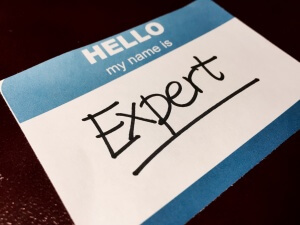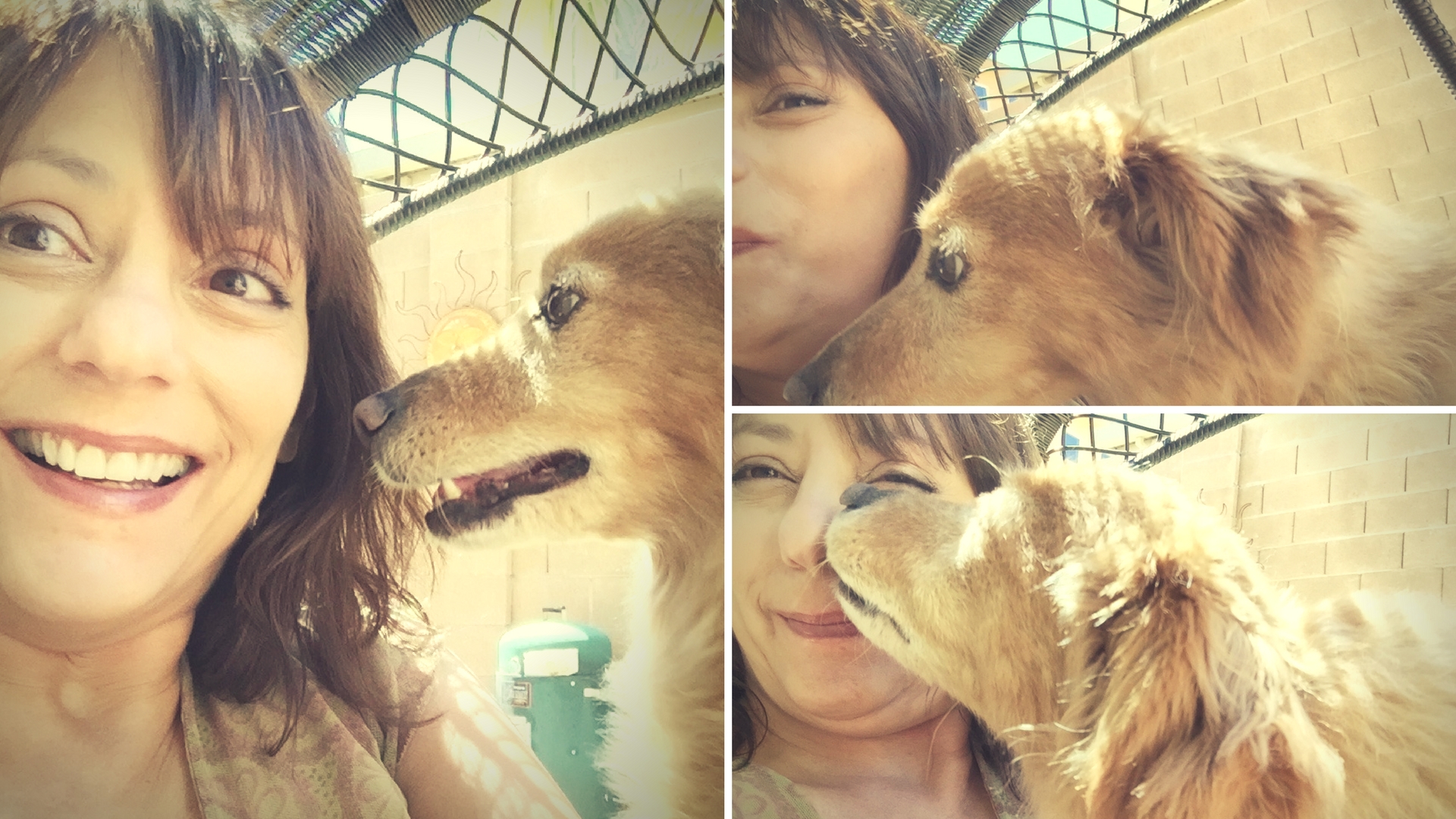
Allow me to climb up on my soapbox for a minute. The topic is around the idea of “expert,” and who gets to call themselves that.
The short answer? Any damn person who wants to call himself or herself an expert can do it. But the word – and the attitude that goes with it – is essentially hollow. I have met people with numerous advanced degrees (real ones, not diploma mill ones) and decades of experience who shirk from that label.
But there are plenty of people who deem themselves an expert at a topic because they have lived through it. Or they thought it sounded cool to be able to offer advice to others. And so they create a website. They offer coaching, based purely on the premise of “If I can do it, so can you.” There may be media badges on their website. Look! They published an article on The Huffington Post! Look! They were featured on TV!
The media are great for raising one’s public profile, but a 3-minute feature on The Today Show is not the same as having real training or credentials in a profession.
Practitioners may even offer up some official-sounding credentials that are pure fluff – or possibly even deceptive. I have come across a practitioner who claims a certification from an Ivy-League university. The reality? It was a 30-hour online course based on the work of an Ivy-League professor.
I have wanted to write this post for a while, but was finally spurred on by an email I received from a business coach urging that everyone is an expert who can get rich. This coach refers to those successful entrepreneurs who:
“are crushing it online, making hundreds of thousands of dollars.
But here’s the thing – these people don’t necessarily have advanced degrees or years and years of training.
In fact, you probably have just as much knowledge about something in your own life.”
Well, that’s true, because many of those entrepreneurs aren’t really experts. However, they are great at marketing and “hitting the pain point” (which is what online entrepreneurs are advised to do). [Tweet “Those people making six figures aren’t really experts; they just play one on the Internet.”]
Why is it important that an “expert” is really an expert?
The most important reason for real expertise is public safety. It’s why licensing boards for professions such as medicine, cosmetology, and law exist. We can probably all point to a licensed professional and roll our eyes at their seeming incompetence. However, licensure requires at least a basic level of training and knowledge. If a professional falls short of that, or violates the profession’s ethical code, there are repercussions.
Some professions, such as massage therapy, require a license in some jurisdictions but not in others. Registered dietitians are typically licensed professionals requiring a bachelor’s or master’s degree, but the term “nutritionist” varies widely from state to state. In some states, you could watch a YouTube video and start selling your services as a nutritionist or hypnotherapist. Scary! Life coaching and health coaching are becoming more popular, but coaching is a largely unlicensed and unregulated field.
If you are searching for services to help you, you are often at a vulnerable point. It’s crucial to know if the person you are entrusting with your heart, your health, and your money will have your best interest at the core. You also expect them to know what to do. You want them to be able to deliver what they say they can do, and also to acknowledge their limitations and scope of practice. An example of this is medicine’s general practitioner – who knows a heck of a lot about a wide variety of medical topics – and also knows when to refer to a specialist.
Why the fake-expert situation is scary.
Frankly, it can be very difficult to tell who is legitimate. There is no definition of “expert,” so anyone can claim that moniker. Sometimes this works out fine, if the practitioner understands her limitations as well as her knowledge. Frankly, some lay practitioners are good at what they do. But some are not. And there’s no oversight, as would be the case with a professional licensing board.
It can be almost as difficult for a practitioner to know his scope of practice. There are some voluntary accreditations, for example in the field of coaching, which include ethics as part of the training. This helps alleviate the problem of a practitioner not knowing what she doesn’t know. Some may be scammers, but many have good intentions. Unfortunately, good intentions and a sincere desire to help others is not enough. As I’m sure you’ve heard, good intentions pave the road to hell. Not knowing if he is out of his scope; not knowing what condition he is looking at with a client; and not knowing how to handle negative reactions from clients are just a few of the ways that a non-expert can get in over his head.
Let the buyer beware.
If you’re not sure if that healer, teacher, or coach has the knowledge base to really help you, here are some things to look for.
- Does she rely on her personal story as the sole source of her expertise? Personal stories are a great way to establish rapport and empathy online. Certainly, many physicians, lawyers, and teachers come to their profession due to a personal story. Unfortunately, personal experience is often not enough. If someone is offering support and education based on their personal experience, that can be very useful. However, if they are promising grand transformations, take a closer look. Does the transformation they promise infringe on the scope of practice for licensed professionals such as mental health therapists, physicians, physical therapists, or registered dietitians?
- Are their listed credentials real? Sadly, you can buy PhDs and other degrees online. Also, some practitioners have worked in good faith to earn a credential, but it turns out that their educational institution is not trustworthy. This can be a matter of the practitioner being snowed, too. Some people have studied nutrition or other topics without knowing that their school was unaccredited or not otherwise legitimate.
- Is the training program they attended exaggerated? A non-degree educational program with no evaluation process (i.e., grades), may include some good information. However, it is in no way equivalent to a college or graduate degree + supervised internships + licensure process, etc.
For more information about ethics in coaching, click here and here.






